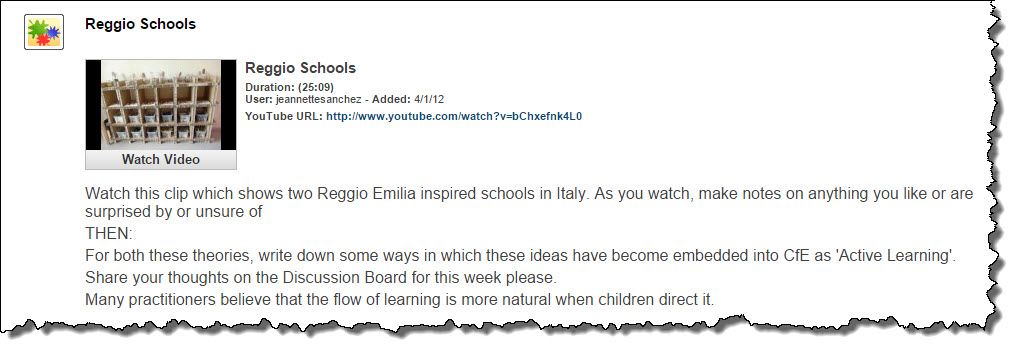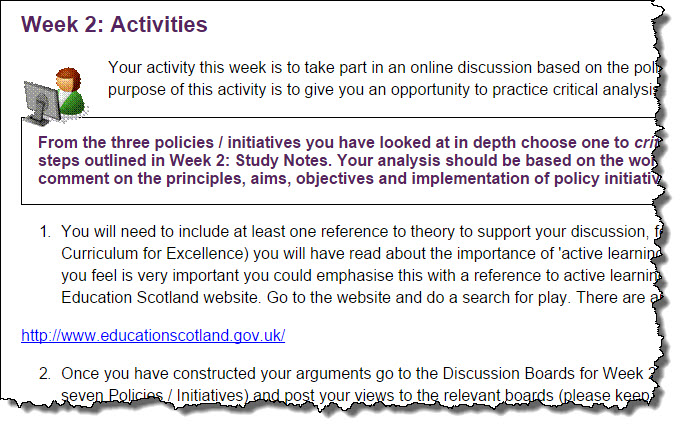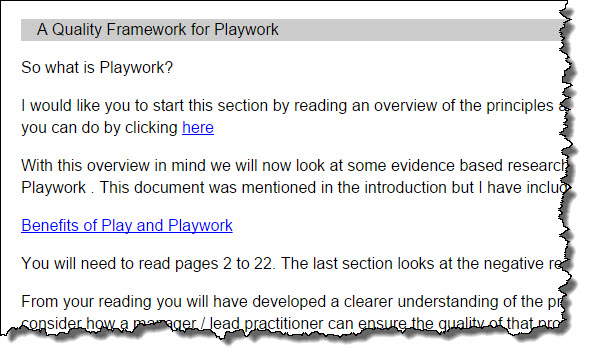A look inside the Childhood Practice BA (Hons) degree
Find out more about Childhood Practice BA (Hons) at the University of the Highlands and Islands.


- Early Childhood
Philosophy and Practice - Assuring
quality - Contemporary
issues - Childhood practice
workplace project
-
Early Childhood Philosophy and Practice
Assuring quality
Year 1 – Core module: Introduction to Early Childhood Philosophy and Practice
The aim of this module is to introduce students to early childhood philosophy and related curricular practice. In doing so the following learning outcomes will be covered:
- Demonstrate an understanding of early childhood philosophy.
- Identify and investigate both historical and contemporary perspectives that have influenced the development of early childhood philosophy.
- Describe the themes and characteristics of curriculum frameworks in early childhood.
- Demonstrate an understanding of current curriculum policy, practice and strategies that support an early childhood curriculum.
Throughout the duration of the module students have access to a mixture of learning resources and supportive interactive activities. Examples of these can be found in this ‘taster’. The learning resources offer information related to the module content and encourage students to undertake wider reading and independent research. These resources are supported with interactive activities and tutor input via short videos which encourage students to consolidate their learning. The use of online discussion forums and the creation of wiki pages fosters a reflective environment in which students are able to interact, seek support, share their developing understanding and learn from each other.
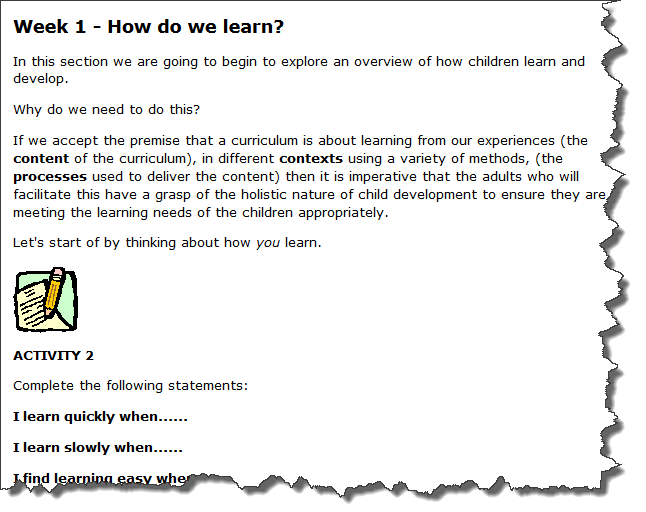
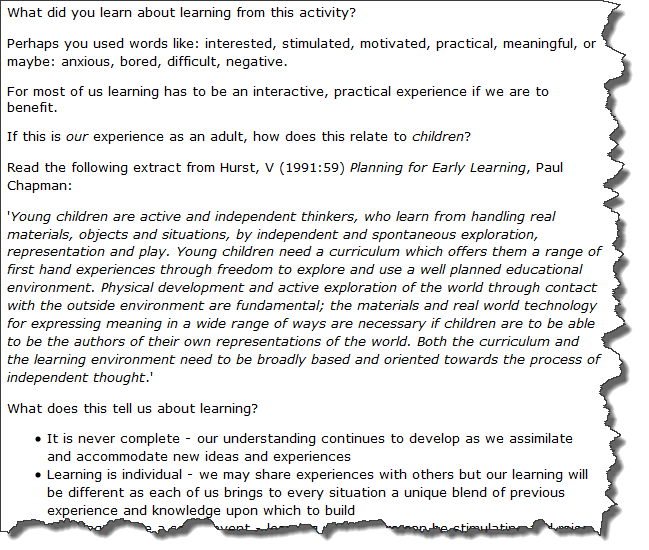
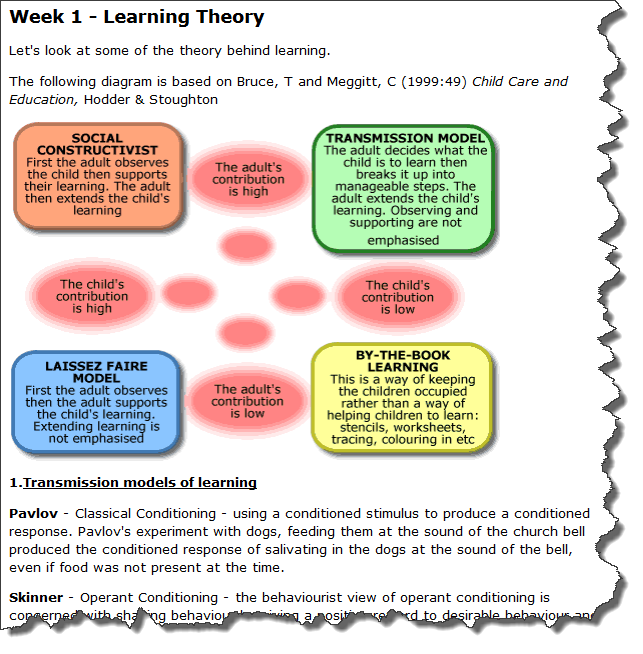
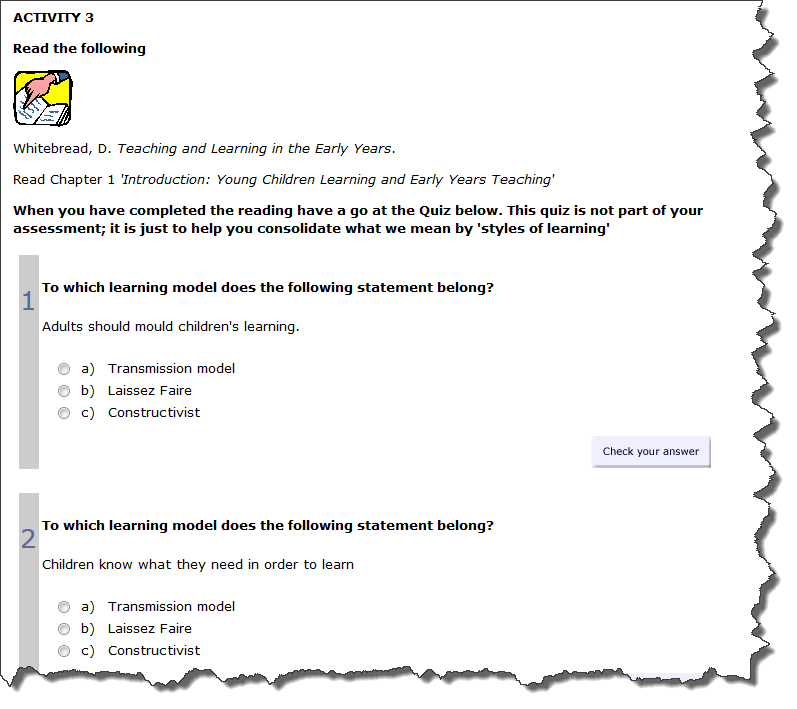
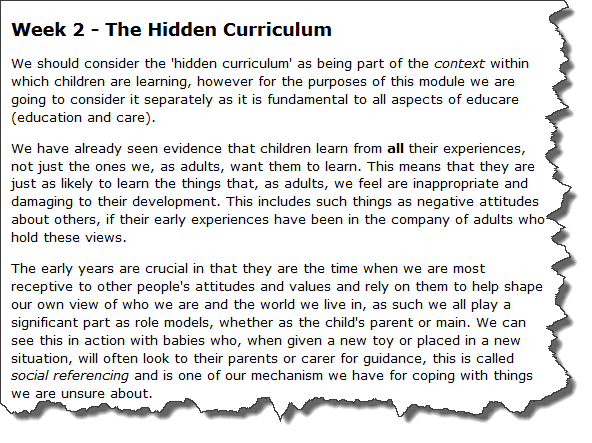
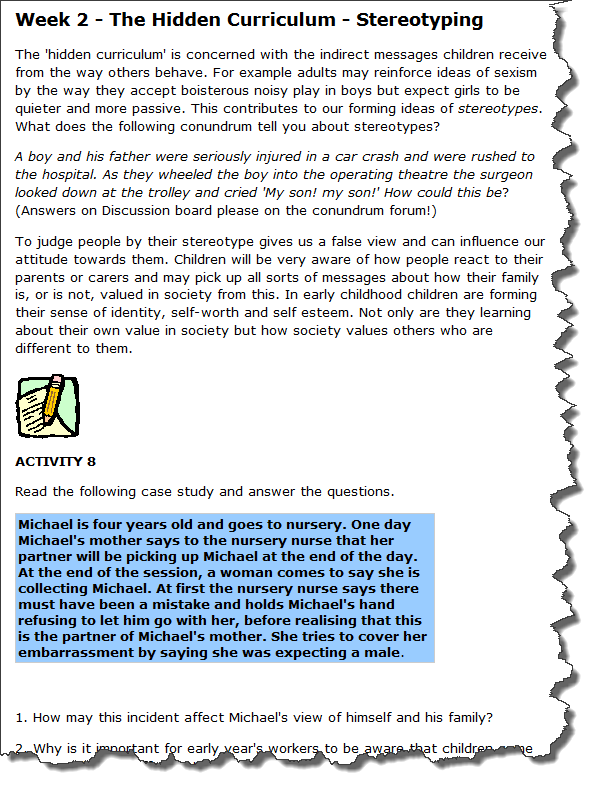 Contemporary issues
Contemporary issuesYear 1 – Assuring quality in a childhood practice setting
This module will introduce you to a wide range of issues related to quality provision in Childhood Practice, covering children up to the age of 16. The learning resources examine the concept of quality from the perspectives of play provision within Early Years and Playwork, the requirements of regulatory bodies and the adult’s role in managing Quality Improvement. You will have the opportunity to broaden your knowledge of theory and to deepen your critical understanding of relevant legislation as you are supported to reflect on your own practice within your own workplace setting.
Throughout the module you will be asked to:
- Pause and reflect on your own practice and experience. Write down your thoughts as they may help you when you come to write the assessments and they will inform your contributions to the Discussion Board.
- Read some pages/ chapters in one of the books on the Module Reading List.
- Access websites to research online to find further information.
- Post something onto the Discussion Board. This is an excellent forum for sharing ideas, just as you would in conversation in a real ‘face to face’ classroom. It is designed to be a ‘collaborative learning space’ where you can share what you have learned or ask each other questions in a safe and inclusive place.
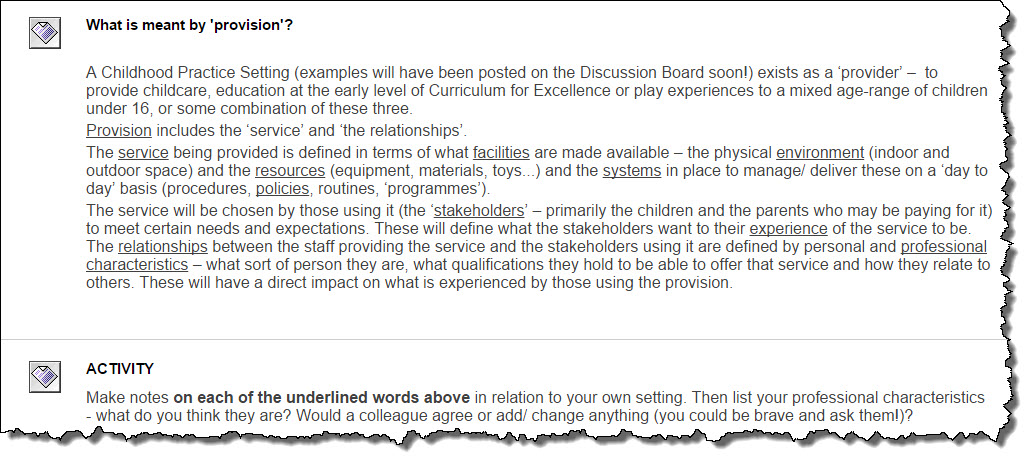
 Childhood practice workplace project
Childhood practice workplace projectContemporary issues in childhood practice
Approaches to childcare and education have changed rapidly in recent years and a wide range of new ideas have been presented to practitioners through government policies and initiatives and research. It is essential that professionals evaluate developments according to sound principles before attempting to implement changes and to consider how to effectively lead their staff team through the change process. This module will respond to developments in the context of education and childcare policy and practice to enable students to apply new knowledge and skills in their workplace, this will include topics on:
- New policies and innovative practice
- New research findings in learning theory, play and active learning
- European and other perspectives
- The development of the reflective practitioner
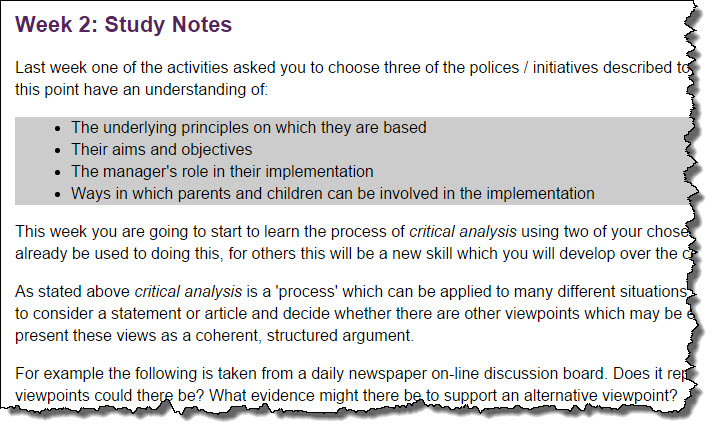
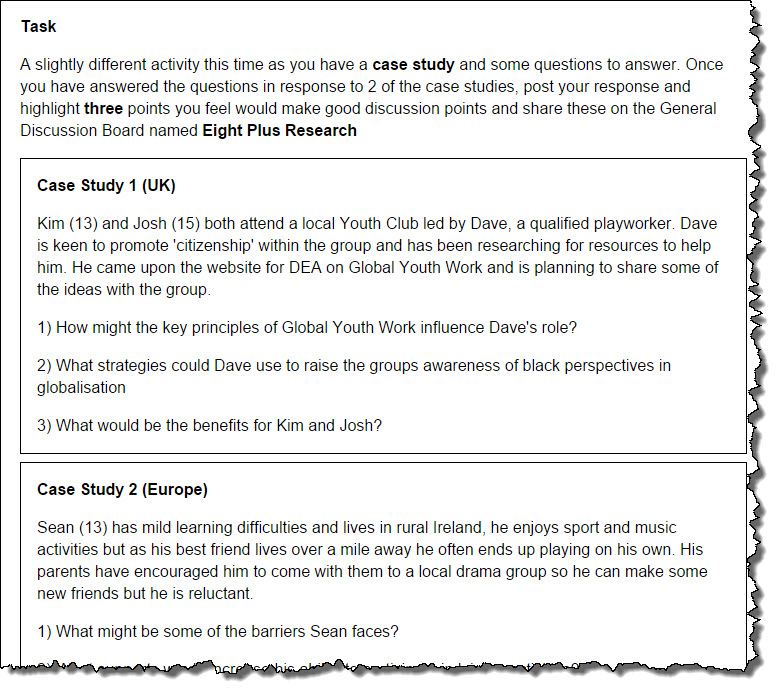
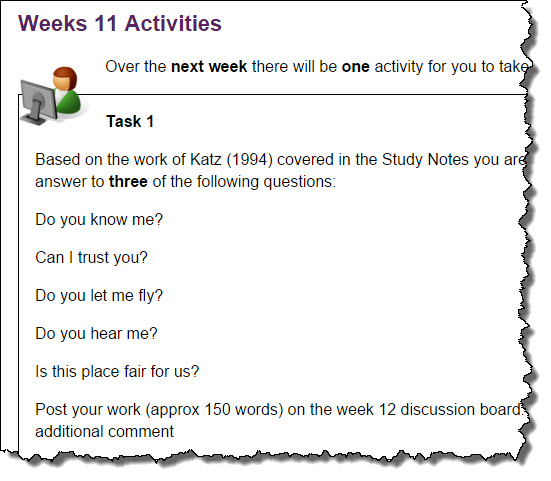
Developing a childhood practice workplace project
Welcome to the ‘Developing a Workplace Project’ Module. The purpose of the module is to provide students with a solid grounding in research methods and methodologies, with a particular emphasis on developing key skills in relation to the design of meaningful research in childhood practice settings.
Throughout the module students are encouraged to engage with a number of formative tasks related to their emerging research interests. Through the exploration of a variety of sources, and insights gained, students develop an understanding of how professionals:
- Identify and address real issues in order to develop practice.
- Identify strategies and action steps which lead to the effective management of innovation and development.
- How to gather and analyse evidence in order to judge the effectiveness of practice development.
The module provides a structured approach to the developing plan for a workplace project which will be undertaken and implemented in the subsequent module Leading a Workplace Project.
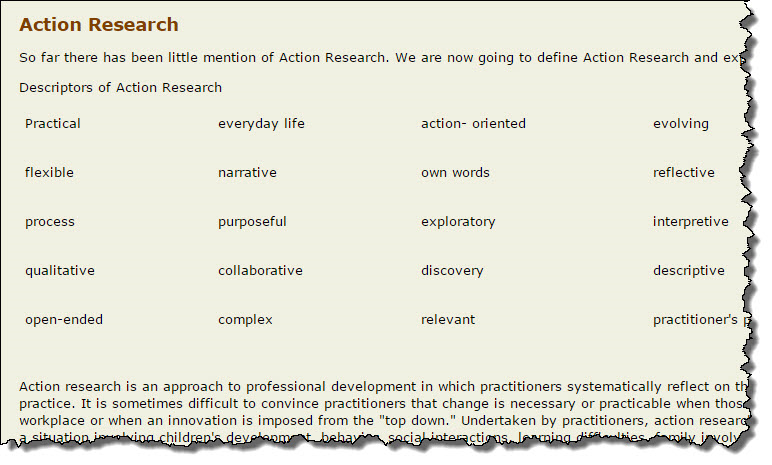
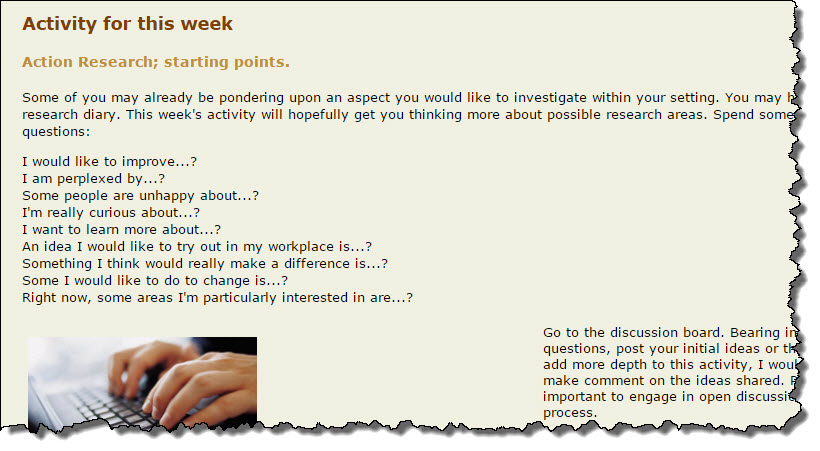
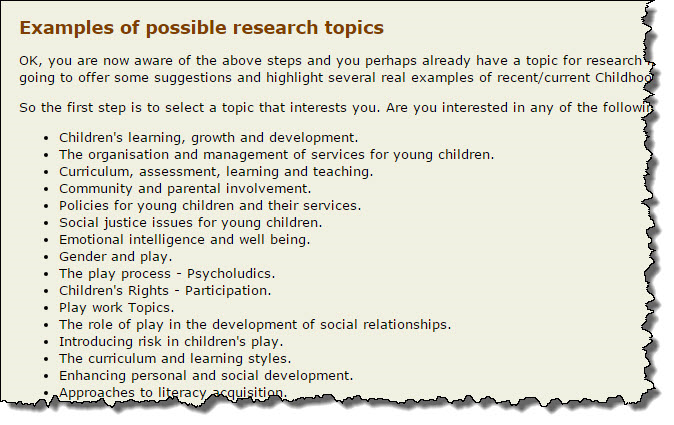
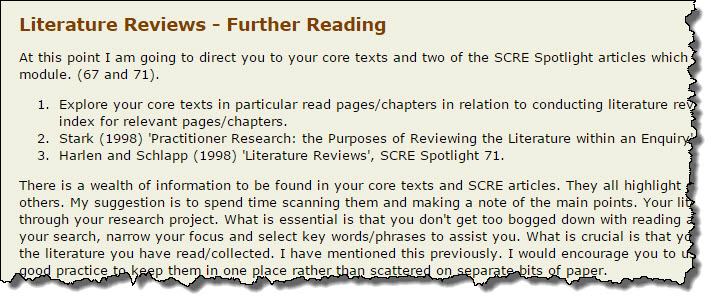
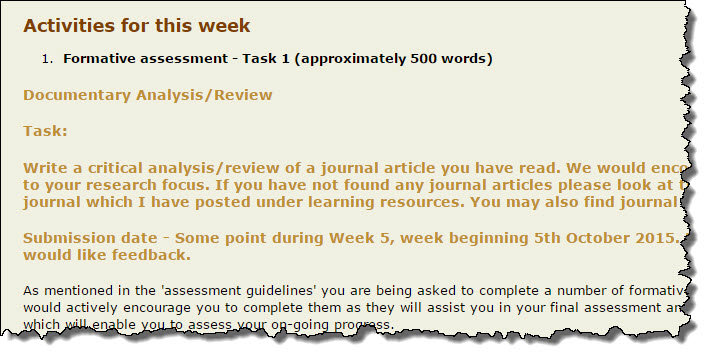
-
Your PAT tutors
Tutors and students
PATs are members of the university's academic teaching staff, support staff or Learning Centre managers. Whilst a PAT will often be a subject expert in their students' programme of study a PAT is not expected to bring that subject expertise to bear for all modules on the course. A PAT's main responsibilities are to give advice, signpost and offer referrals. The following testimonials from two PATs on the BACYS programme show the breadth of support they give.
'As a PAT, students will come to me with not just academic concerns but also issues they may be having at home, and my role is to give a listening ear and support as needed.'
‘The PAT is your professional point of contact throughout your academic journey. Your PAT acts as a liaison between you and the university for all academic matters.
The PAT aims to ensure you have a solid understanding of the time commitment and management, technology, and skills required to be a successful online learner. Your PAT will serve as your primary resource for queries and concerns regarding your studies, including module DIET selection, study progression and any potential barriers to successful completion of your studies. (Kyla Steele, Argyll College)
'Your PAT offers a pastoral role, general support and guidance in a confidential manner throughout your academic journey.'
‘As a pat, my role changes throughout the year. Initially with students settling down and working hard to understand how the online learning environment works, my role is to provide support and guidance to ensure that all students are understanding how it all works. Moving through the weeks, I help with academic support such as assessment structures, referencing, accessing resources such as the online library and general help with navigation through Blackboard. Help with study timetables and realistic goals and targets are set to help students focus.
At the more stressful times when assessments are due or exams are being sat, I provide support and encouragement (and sweets and cakes!).
Towards the end of a student’s time with me, I will provide references or letters of support for jobs or further study and will also give guidance on career areas of interest – and if I don’t know I will send them to someone who does! I want all the students that I am PAT for to feel that they can contact me and talk to me when they need so I can help them be the best they can at their studies and progress onto the careers they are aiming for. (Diana Macleod, North Highland College)
'Being a PAT is one of the best parts of my job'
‘Being a PAT is one of the best parts of my job as I get to know my students from induction and watch them progress through the course. I like to build an open and honest relationships with my students so they feel they can come to me when times are hard and know they will be listened too and signposted and guided to the people and resources that will help them with the issues they experience.
I do all the usual administrative parts around enrolment and module selection and even the wee nudges about library books being overdue but I also help them to get to know each other in my groups to they can have study buddies and peer support and just to connect them to each other as well as the course as students of UHI.I do provide a listening ear most especially around assessment times and can get as many as 40 texts in a day when the class have assessments looming all of which just need the acknowledgement that assessments are stressful and that bit of reassurance that yes they can do it.
Sometimes I even just say Go and do it and the sympathy and praise comes later. I want to share one example:
I had a young lady join my group and her family cultural background was that women did not go into Higher Education. Within weeks her father insisted she leave the course and work in the family shop and help look after her younger brother so she came and told me and we activated a withdrawal as she felt she had no choice. But, she did have a dream of achieving a degree so came back to see me almost 1 year later and we sat down and discussed how she could do this, part time at first and we would review after each level and then her final year full time. We met regularly just so she could talk and get some reassurance. Times were very challenging and this made her ill but we claimed mitigation and got her through each level. When her financial situation deteriorated to the extent she was having to support her brother I took her to guidance and they helped her apply for a student loan and she found part time employment and she just took one step at a time and we overcame each hurdle together.
In September I watched her graduate with her degree and as she approached the platform we made eye contact and her journey to where she was flashed between us. She told me later “what you have done for me has changed my life forever”. Her words will stay with me forever and have captured for me everything that is important about the PAT role.' (Kathleen Murray, Inverness College)
Tutors and studentsMuch of the communication between tutors and students, and students and students, takes place via the VLE. The VLE has a variety of communication tools which you and your tutors may use in modules.
Announcements
The Announcements page is the first thing you see after logging into the VLE. They can contain text, images, links and even multi-media. Your tutors will use the Announcements page to tell you about the week to come, to keep you on track and even share a thought for the week:
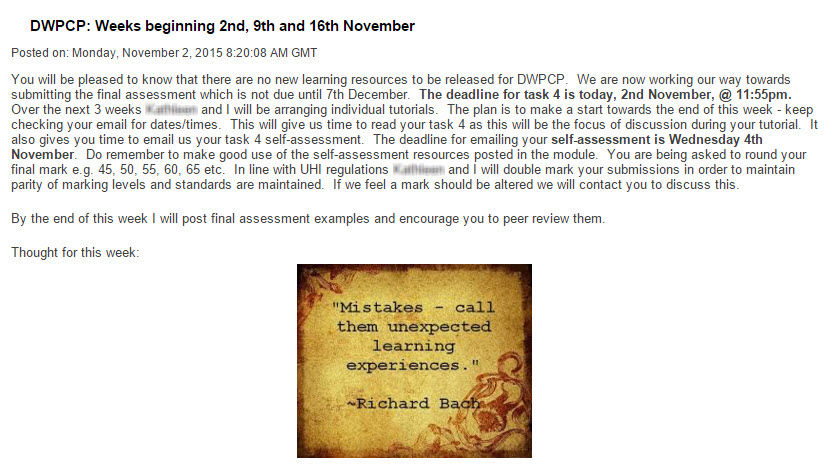
Alice Mongiello - DWPCP
The discussion board
The discussion board is tool for sharing thoughts and ideas where you can post and read messages. It is used by tutors and students for both general, informal communication and for activities as part of the learning process. On your module, you may work in groups, individually or as a class.



Examples of discussion board posts in a general course forum
The collaboration chat room
Students and staff may be located in different areas and may also work full- or part-time while they are on the course. The chat room provides an opportunity for everyone to meet online and use chat to share their thoughts via chat messages.
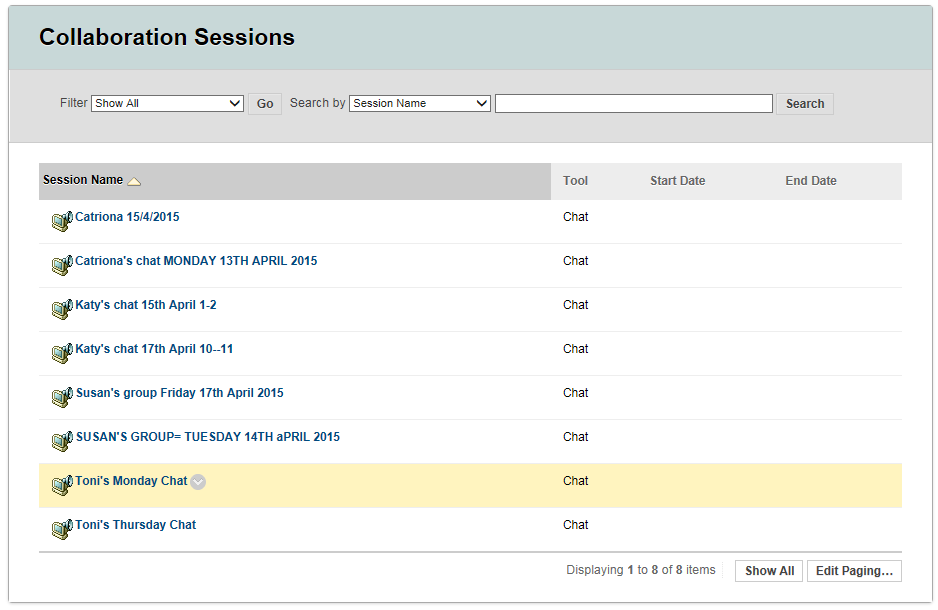
Blackboard chat room sessions
“The material is very relevant”
‘I'm enjoying the BACP, although it is hard work - there's lots of reading, and students definitely need to be committed to studying - it's not a soft option! However, the material is very relevant and all the effort is balanced out by the positive sharing of practice that goes on through the Discussion Boards! I've got some great ideas, and hopefully may have passed on some ideas of my own....’
“Help and support are available from tutors and fellow students”
‘This is a very worthwhile course covering relevant issues within childcare. Each module asks the practitioner to reflect upon and analyse their own practice in order to develop it. As it is an online course you can at times feel isolated but help and support are available from tutors and fellow students particularly at the most important times - when assessments are due. Although the course involves a lot of hard work I would recommend it to other practitioners.’
“My knowledge and understanding has greatly increased as well as my confidence”
‘The BACP has been tough going but worth the effort. My knowledge and understanding has greatly increased as well as my confidence, before I was the one sitting in the corner trying not to be noticed at networks, conferences etc whereas now I actually speak up and participate. The work is relevant to all educare services which has had a positive impact on my practices thus benefiting staff, children and families.’
‘My experiences on level 9 BACP have been essential in the improvement of my practice and to my growth and development as a lead practitioner. I have gained vast amounts of knowledge which will hold me in good stead for my career both now and in the future.’
“The flexibility it offers has been a major factor in me seeing the course through”
‘It seems daunting at first, doing everything on the computer, perhaps not seeing other students or having face-to-face contact. It starts to fit very quickly - managing your learning around when it suits your lifestyle, family or work. You really can get weekly reading and tasks done by devoting a full day to studying or spreading it out over a few nights. I now can't imagine doing it any other way - the flexibility it offers has been a major factor in me seeing the course through - and the fact you get the school holidays!
Depending on your work base, you will have a head start and good knowledge for some modules and others will need more reading. However, all are interesting and thought provoking and have their relevant place. My four years have truly flown by and the insight and knowledge gained have significantly changed the way I view my work.’
-
Assessment
Assessment support
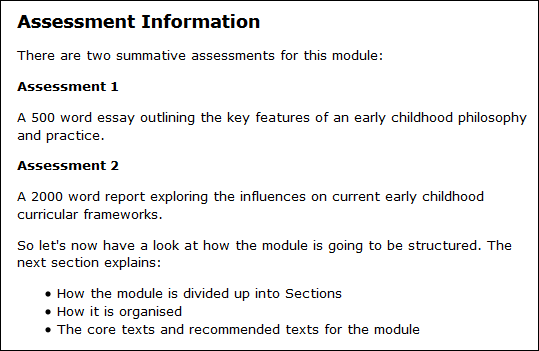
In the example above the assessments are in the form of an essay and a report. Alternatively, in some modules, your posts to the discussion board on specific topics may form part of your assessment (for example, 20% of your final mark).
AssignmentsGuidelines and support for assessments is provided on each of your modules.
Your module tutor will use the VLE to offer you guidance about your assignments.
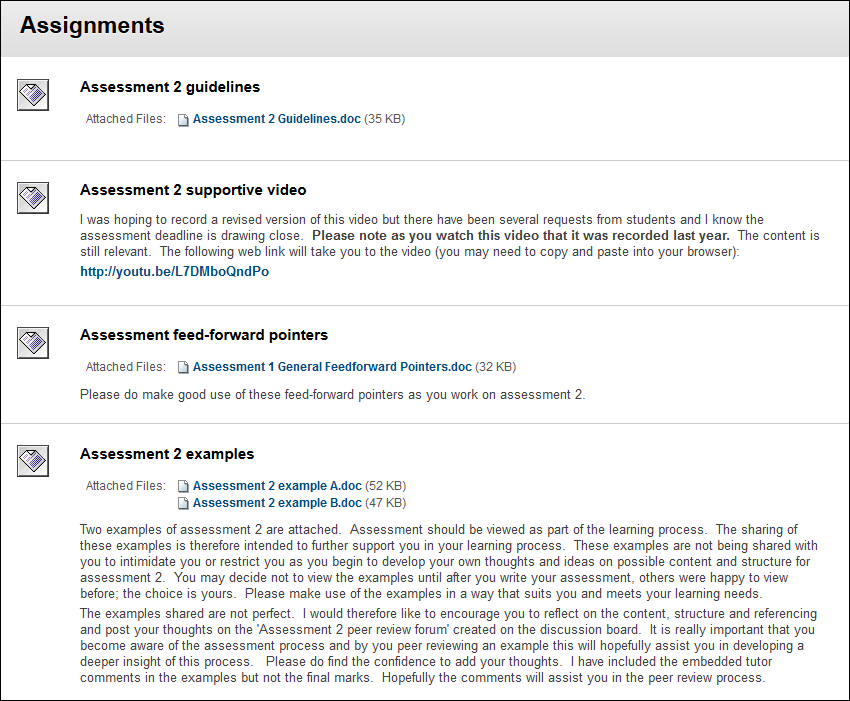
Blackboard Assignments area
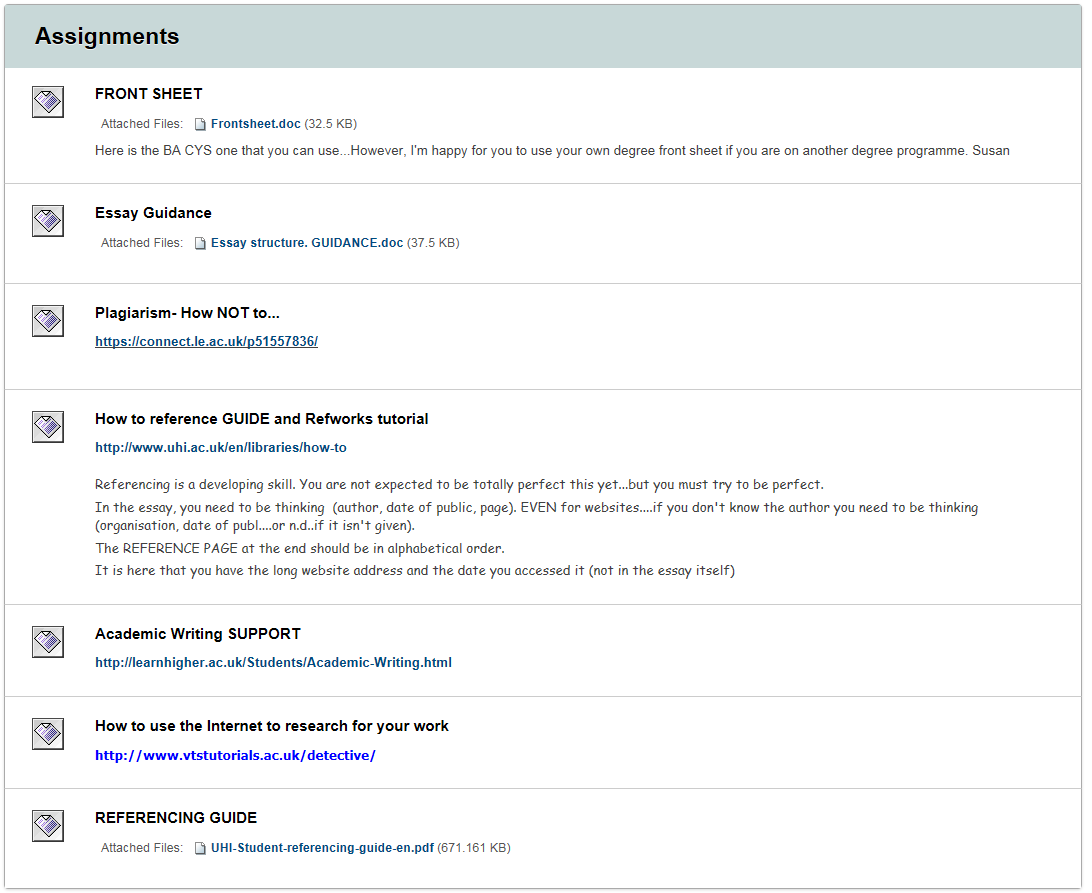
Blackboard Assignments area

